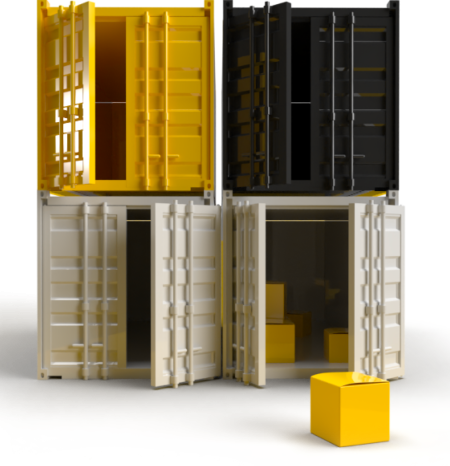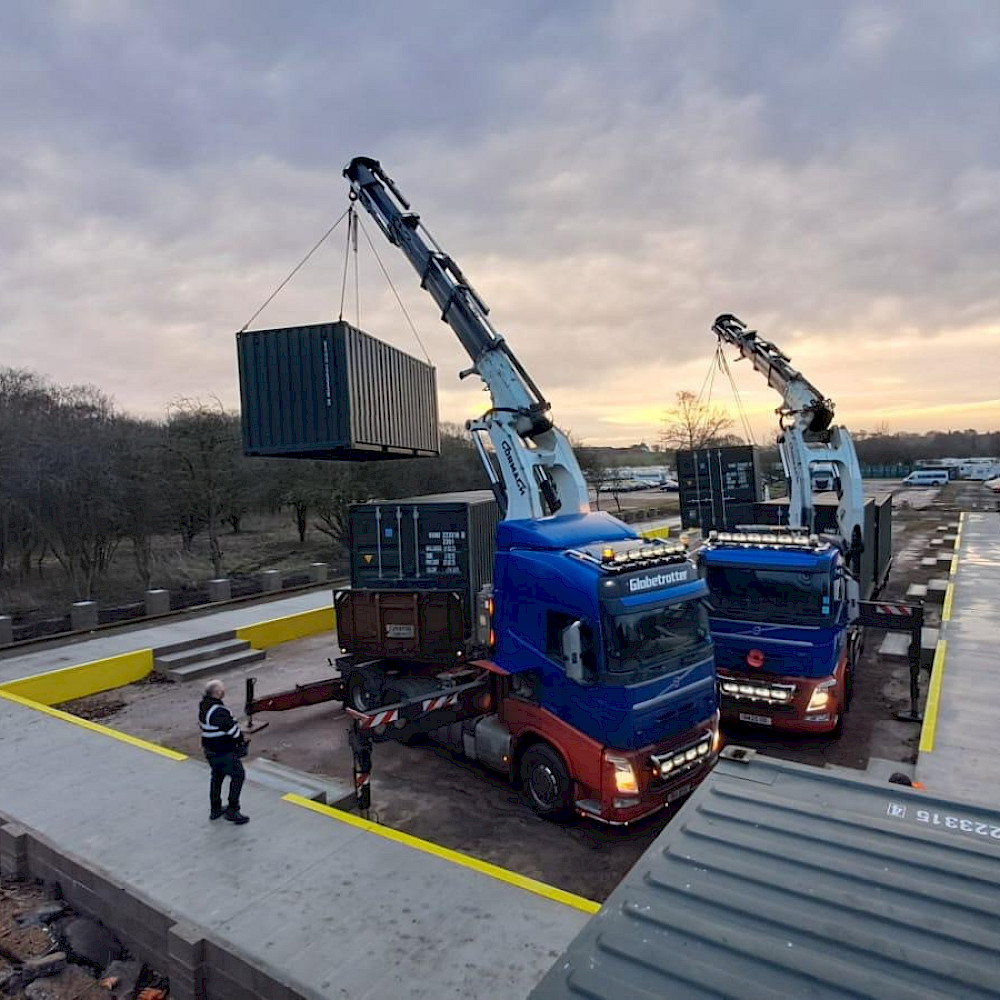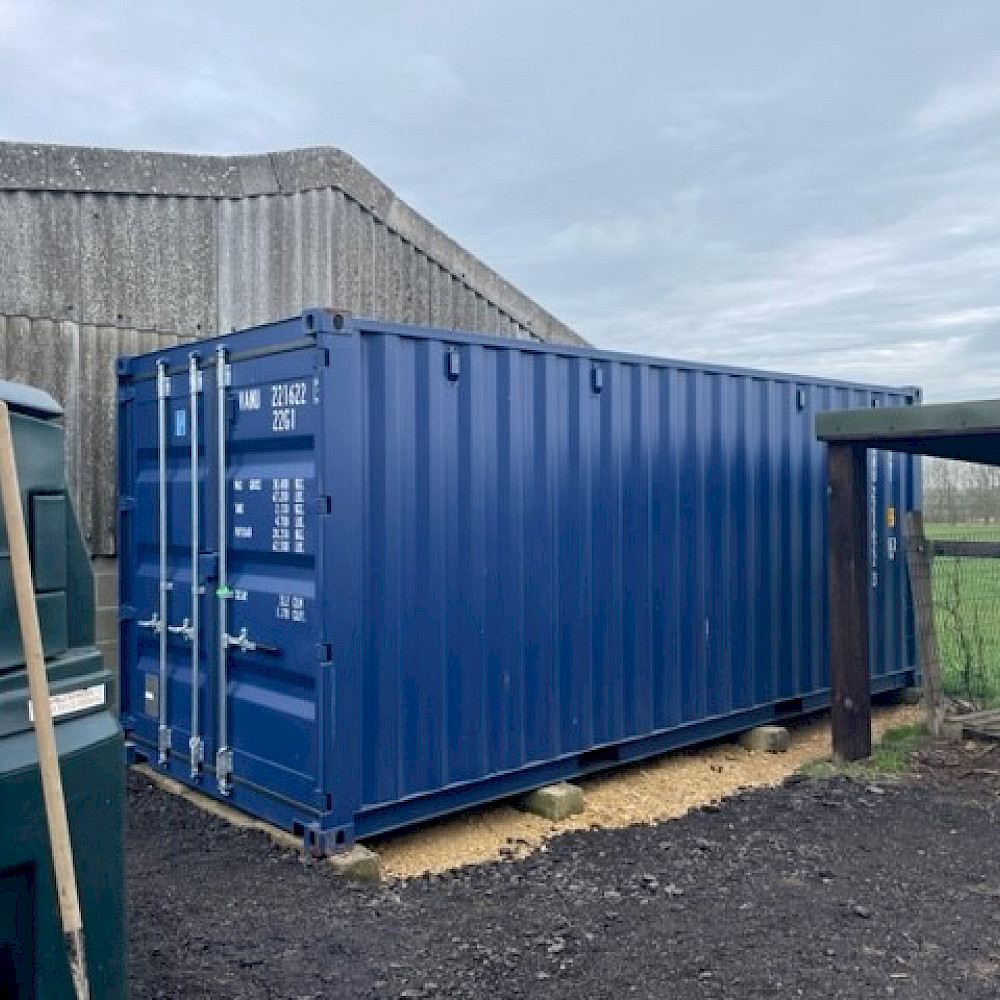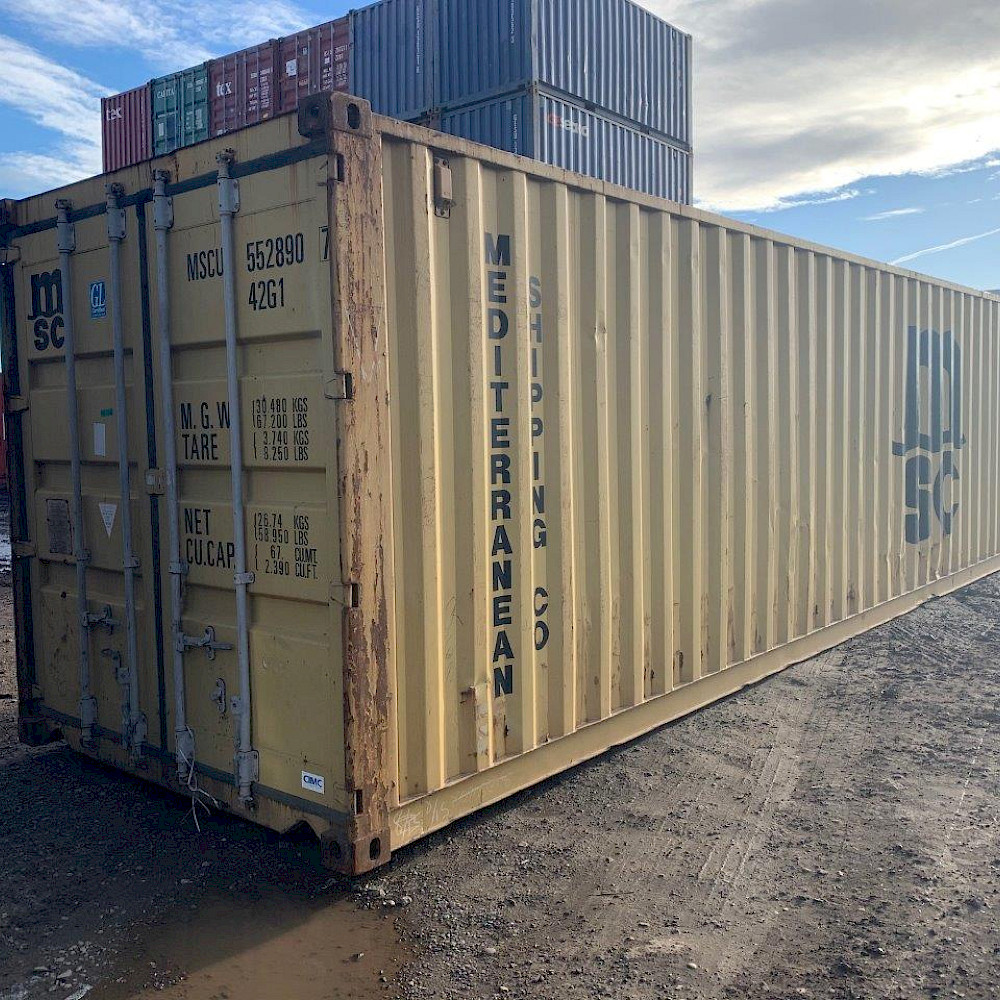A Comprehensive Guide to Shipping Container Prices in the UK
26 September 2024

Shipping containers have become increasingly popular for a variety of uses beyond their original purpose of transporting goods. From pop-up shops and cafes, to workshops, innovative housing solutions and office spaces, shipping containers are being repurposed in creative ways across the UK. But how much does a shipping container cost? If you’re considering purchasing a shipping container, understanding the factors that influence the price is important.
Several factors can affect the price of a shipping container in the UK:
- Size: Shipping containers come in a variety of sizes, starting at 8ft long, with 20ft and 40ft being the most common. The size of the container is one of the most significant determinants of price.
- Condition: New containers, often referred to as ‘one-trip’, are more expensive as they have only been used once. Used containers, which have been in circulation for several years, are generally cheaper but will show signs of wear and tear. ‘Near New’ units can be considered a middle-ground in terms of pricing – units are in much better condition than used and still have plenty of years of use, but come without the ‘pristine’ label and therefore the higher price tag. These generally come from our domestic rental fleet and are subject to availability.
- Type: Aside from standard containers, there are other types such as refrigerated containers (reefers), open-top containers, side opening, double ended (tunnels) and high-cube containers. Specialised containers like reefers are more expensive due to their ability to maintain specific temperature range. Reefers are used for the storage of perishable or sensitive goods.
- Market Demand and Supply: The price of shipping containers can fluctuate based on market demand and supply dynamics. For example, during times of high demand for shipping or after disruptions to supply chains, prices can increase. Pricing is set by the manufacturers in China. Exchange rates and raw material pricing can also have an impact on cost prices (and therefore retail prices). This will also affect used shipping containers – used unit prices typically follow new unit prices due to the cost of replacing those in the fleet once they have been retired.
- Location and Delivery Costs: Delivery costs of your shipping container will vary depending on where you are located in the country. We store containers in multiple locations throughout the UK (many of these storage locations are close to ports, e.g. Felixstowe, Southampton, Tilbury or Liverpool). The closer you are to these storage locations, the lower your delivery cost is likely to be. Delivery is quoted based on your postcode.
- Modifications: If you need modifications, such as adding doors, windows, insulation or electrics, these customisations will increase the price.
If you’re in the market for a shipping container, here are a few tips to ensure you get the best value:
- Inspect Before you Buy – Some depot facilities will allow the public in for viewings, and if not photos should be possible to provide in most cases.
- Pick a Reputable company – Ebay/Gumtree/Facebook can be a great place to purchase a shipping container but they are also rife with scammers. Try to do as much research as possible on where you are looking to buy from and if possible ask to view before buying so that you can verify the container exists. Recommendations from word of mouth are great, check a company’s details look legitimate online, or read their google/online reviews and see what other people have experienced when buying from them. The Container Self Storage and Traders Association also provides a list of accredited and bonafide traders: https://www.containa.org/member/secure-stores-nationwide/
- Consider Delivery Costs: Make sure to factor in the cost of delivery to your location when budgeting for a shipping container. This may also include ensuring your site is suitable for delivery which may require laying foundations, removal of trees/branches and appropriate materials to level the container, e.g. concrete slabs or sleepers. This will add to the overall cost.
- Check for Certifications: If you intend to use the container for international shipping, it needs to be CSC (Container Safety Convention) certified. Make sure any container you buy has the appropriate certification.
- Think Long Term: Consider not only your immediate needs, but also any potential future uses for the container. A slightly more expensive container that is in better condition may offer better long-term value.
By keeping these insights in mind, you’ll be better equipped to navigate the UK shipping container market and secure a container that meets your needs and budget.
Happy container hunting!
If you'd like to discuss your requirements, please contact us here.
Renting vs Buying A Shipping Container


